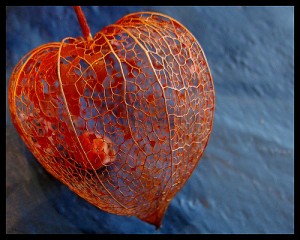Loving with Ann Townsend’s “Love Poem, Unwritten”
by Linda Tran · April 11, 2016 These three words, “I love you,” roll off our tongues so easily these days, years. To family and friends. To significant others. But with our friends and family, love comes easy; easy to smile and joke, touch and stare, kiss and tell. Family and friends have a different kind of bond, one that usually lasts longer because they’ve grown with us. Significant others are not always…significant. And their love is not always hard as steel. Etched in stone.
These three words, “I love you,” roll off our tongues so easily these days, years. To family and friends. To significant others. But with our friends and family, love comes easy; easy to smile and joke, touch and stare, kiss and tell. Family and friends have a different kind of bond, one that usually lasts longer because they’ve grown with us. Significant others are not always…significant. And their love is not always hard as steel. Etched in stone.
In Ann Townsend’s “Love Poem, Unwritten,” first published in Five Points Vol. 3, No. 3, the narrator is asked by his lover to write a poem to prove his love “once and for all.” The conversation occurs as jarring sounds come from their neighbor doing heavy yard work. It’s these sounds that has the narrator thinking back to a turning point in the couple’s relationship: a kiss in a stalled elevator.
The first kiss. The most memorable one. Also can be the most damaging.
He remembers his heart missing a beat during it and recalls the doctor diagnosing that it is “just a mild cardiovascular sickness,” not love as anyone else would assume.
The narrator is unable to say his love, unable to write a love poem for his partner because of the realization that he does not love her wholly. He says that he will keep the poem near his heart, in his “shirt pocket,” even though it seems that it will never be written or given to his lover. However, his “stutter-start,” “shyly,” and “stammering” reactions to the situation indicates that he is not entirely out of the run for love with his partner.
“…So I’ll keep it
in reserve, shyly hidden
in my shirt pocket,
like a stammering letter to you
that I fail and fail to send. ”
We all curse ourselves over love because we cannot control it—whether we want the will to love or the cessation of it.
Ann Townsend’s poem showcases an unrequited love, but it is not quite set in stone as the narrator does have some hope to love his partner enough to complete her request someday. The piece encases sorrow and loneliness, but there is a fragment of hope and longing for a greater future.
Love is long, complicated, and fragile like our own hearts. It’s the realization of these three attributes of love that makes it worth a try.
(Image is a courtesy of Flickr through Creative Commons.)
